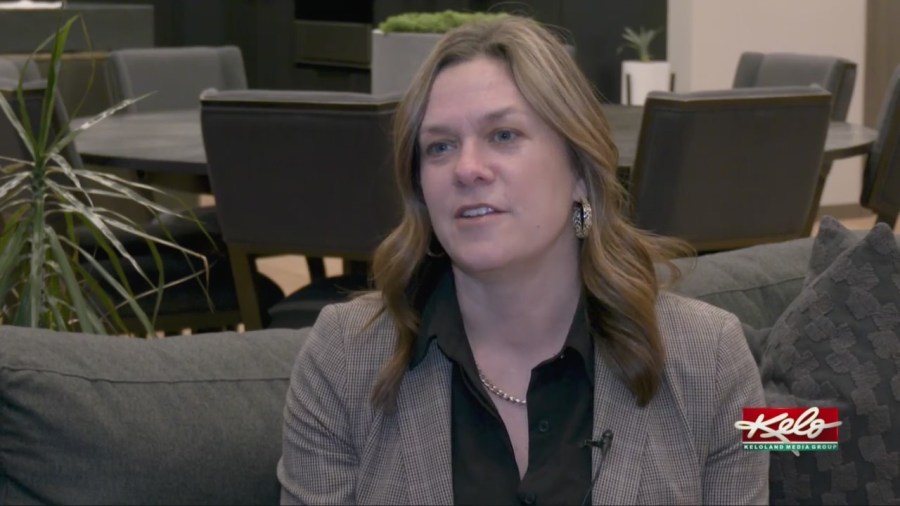SIOUX FALLS, S.D. (KELO) – January is cervical cancer awareness month and a Sioux Falls woman wants to spread awareness by sharing her personal cancer journey.
In 2004, Ali Hofer found out she had an aggressive form of cervical cancer.
“I had some irregular bleeding, so outside of periods I was bleeding after intercourse, which is an unusual symptom. And so reported it to my doctor and through a series of evaluations and biopsies, determined that I had cervical cancer,” Hofer said.
Doctors then determined she needed a radical hysterectomy rather quickly.
10 Commandments in school bill narrowly passes Senate
“Which is essentially where they remove everything from your ovaries down, and then they do a little bit of a removal of your lymph nodes in the surrounding pelvic area just to make sure that nothing spreading, it’s a pretty common thing,” Hofer said.
Following the hysterectomy, Hofer also went through six months of cancer treatment that combined chemotherapy and radiation at the same time.
“I can just speak from my experience. Mine grew really quickly. Typically, cervical cancer does not grow that quickly. Had I not pursued it, I would probably not be sitting here talking to you today,” Hofer said.
Her daughter, Anna Langseth, was just turning three years old when Hofer was diagnosed.
“She would kind of try to keep it on the down low of what was really going on. But eventually, I did find out and obviously that led to conversations about the main event when I was two. So somewhere in my maybe like ten or so, that’s what I found out,” Langseth said.
Now 23 years old, Langseth says her mother’s experience has influenced her to be an advocate for her own health care.
“Being able to understand the gravity of going through cancer, it was really scary and it makes me want to do everything I can to prevent having to go through that,” Langseth said.
Part of that prevention is educating more people about Human papillomavirus or HPV, a virus that is the cause of over 90% of cervical cancer cases.
In 2006, the HPV vaccine was first introduced for young women. Now the vaccine is encouraged for both men and women.
“When it first came out, there was a lot of hesitancy. There was concern because if I have the HPV vaccine, does that mean people think I’m sexually active? What does this look like? And really, it’s I think taking on the role of complete just vaccine, you know, prevention of disease,” Hultgren said.
Doctor Elizabeth Hultgren with Sanford Women’s Health says cervical cancer is one of the unique types of cancers that are preventable by getting a vaccine.
“There’s very few cancers that we can say that for. And so typically we start recommending vaccination around age nine and it’s recommended to age 45,” Hultgren said.
Hofer now works as the vice president for Sanford Health’s Good Samaritan Society and has made it her mission to spread more awareness around cervical cancer and women’s health.In 2022 she even went to Ghana with Sanford Health to vaccinate 250 boys and girls to protect them from HPV.
“That was pretty fulfilling for me,” Hofer said. “Kind of helped that part of the healing, and what can I do to make a difference and to give back.”
Hofer says as a parent, she hopes other parents are informed about this highly preventable type of cancer.
“I didn’t want her to go through what I went through. I wouldn’t want anybody to go through that. But most importantly you try to protect your child,” Hofer said. “That’s a pretty strong emotion that most parents can relate to.
Currently, Hofer undergoes annual screenings and even had a brush with cancer cells again in 2016 and underwent surgery. But she says she’s ready for whatever comes her way.
“If something were to come up again, we’d just fight it again,” Hofer said.







